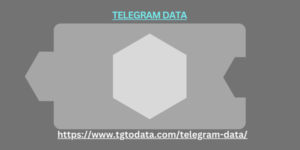The phrase “this meeting should have been an email” has become a common sentiment in workplaces worldwide, reflecting a growing frustration with inefficient or unnecessary meetings. Here’s why this sentiment resonates and some tips on when to opt for an email instead of scheduling a meeting:
Why Meetings Sometimes Should Be Emails
Time Efficiency: Meetings often consume valuable time for preparation, attendance, and follow-up. An email can convey information succinctly without requiring everyone to gather at the same time.
Clarity of Communication: Written communication in an email allows for clear articulation of thoughts, facts, and decisions without interruptions or distractions that can occur in meetings.
Audience Consideration: Not everyone invited to a meeting may need to participate actively. Emails allow recipients to digest information at their convenience, avoiding unnecessary disruptions to their workflow.
Documentation: Emails provide a written record of discussions, decisions, and action items, which can be referenced later. This helps in maintaining accountability and clarity over time.
Cost-Effectiveness: Meetings involve costs such as time, resources, and possibly travel expenses. Opting for an email can save these resources for more critical tasks.
When an Email Is Preferable
Information Sharing: When the primary purpose is to disseminate information, updates, or announcements to a group.
Routine Updates: For routine progress updates, status reports, or minor clarifications that do not require extensive discussion.
Decision Documentation: When decisions have already been Spain TG Number Data made and need to be communicated clearly and officially.
Time Sensitivity: In urgent situations where immediate action or awareness is required, and scheduling a meeting would delay the communication process.
One-Way Communication: When the interaction is primarily one-way (sender to recipients) without requiring interactive discussion or collaboration.

Effective Email Communication
Clear Subject Line: Clearly indicate the purpose or action required in the subject line.
Concise and Clear: Keep the email brief and to the point, focusing on essential details and avoiding unnecessary information.
Actionable: Clearly state any actions required from recipients and set deadlines if applicable.
Consider Tone: Maintain a professional and respectful tone, especially when addressing sensitive or complex topics.
Follow-Up: Ensure clarity by inviting questions or clarifications and being responsive to replies.
Conclusion
While meetings are essential for certain discussions and collaborat Indonesia Telegram Number ions, recognizing when an email would suffice can improve overall productivity and efficiency in the workplace. By using email effectively and respecting everyone’s time, organizations can foster better communication practices and reduce unnecessary interruptions to workflow. Choosing the right communication method—whether it’s a meeting or an email—depends on the nature of the information, the need for discussion, and the desired outcomes, ultimately contributing to a more effective and streamlined work environment.
